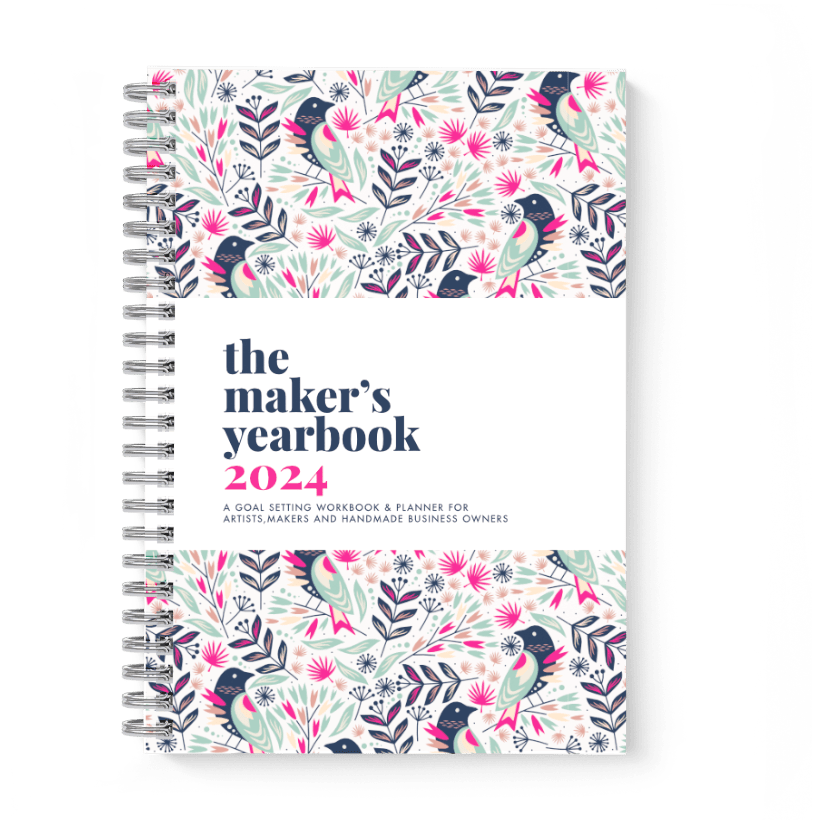It’s been over five years since I started my business as a fine art photographer. I’ve learned a lot along the way and I’ve made a ton of mistakes.
But, without a doubt, the most important lesson I have learned is this…
You cannot have a successful business unless you have a success mindset.
In fact, I believe that your mindset is responsible for the majority of the results you get. Get your mindset under control and you can be braver and more productive than you ever thought possible.
Give in to the mind monkeys, the self doubt, the distraction and the negativity and it’ll feel like pushing a ten ton boulder up a mountain.
Luckily for all of us, a success mindset isn’t something you’re born with, and you can train your mind by making some small changes.
Here are some that have been helpful to me.
Stop worrying about what other people think.
This is a big one because we all like to think that people like us and think we’re good at what we do. But the fact is that people-pleasing has no place in your business.
When I say people-pleasing. I’m not talking about being a generally decent and lovely person. We definitely need more people in the world who are kind and considerate.
What I’m talking about is doing things that deep down you know are bad for business, or just not good decisions, all because you don’t want other people to think you are demanding or arrogant or selfish. I’m talking about putting up with things that are not okay because you don’t want to rock the boat.
Trying to make a decent living so that you can support yourself and your family, is not selfish.
Wanting to make a profit is not selfish. And it’s not selfish to focus on that first, before you think about anything else.
When you buy a stand at an art or craft fair, you are a customer of the organiser and it is not demanding to insist on getting what you paid for. It is not arrogant to say that you are disappointed in the visitor numbers at a particular event. It is not arrogant to negotiate on your stand position.
Of course it is important to treat people with respect, courtesy and consideration and you won’t be in business for very long if you don’t, but you have to be able to say no, to walk away, to negotiate. You have to be able to put yourself and your business first. Always.
TIP:
If you are the kind of person who finds it really difficult to put yourself first, then perhaps think about your family instead. You are thinking of them first and you need to make sure that this event you are attending is worth the family time you have to give up in order to be there.
Cut your losses and ride your winners.
This is a saying from my old stockbroker days. Many of us hold on too long to something that isn’t working, when we should be trying to do more of what works.
You always want to be moving towards the products and activities that bring you the most success with the least effort (as long as you enjoy those activities).
It’s a powerful exercise to periodically think about whether what you’re doing is the most effective use of your time.
Could you be doing something else that works better?
If you’re spending your time trying to make Twitter work but not getting anywhere, could you be doing more with a social media platform that works better for you?
One of the best things you can do for your product range is to constantly assess your winners and losers. Do you have products that just didn’t work for some reason? Do you have something wildly popular and can you expand or adapt that range?
If you keep refining your product range to only include the best performing products, your overall range gets stronger and stronger with less effort. What else could you do with the time that you’re spending on trying to push that underperforming product? Create a new line? Write a book? Spend more time with your kids?
Are you putting a less popular product at the front of your stand, to try and sell more of them? (I have frequently been guilty of this one!)
Should you be trying to sell your most popular products instead? Ummm….YES!!!!
The same goes for your stockists. You should be assessing your stockists, looking at the most successful ones and trying to find more stores like those.
One problem that many of us face at one time or another is having too many sale or return stockists who are not selling enough. We end up really struggling with cashflow because so much of our stock is tied up at locations where our work is just not finding an audience. In these cases, you HAVE to get your work returned so that you can use that stock elsewhere.
Every time you set up a new sale or return stockist, give yourself a timeframe, after which you will assess them and decide whether to continue or not. It’s awful having to ask for your work back and nobody enjoys doing it but you need to get it done somehow.
If it helps, create a template email for this so that you don’t have to think about it and feel bad about it each time. You just push a button and it’s done. A bit like ripping off an elastoplast (Band-Aid for my US friends)
Recover quickly from setbacks.
How quickly you recover after a disappointment is an absolutely critical factor in how successful your business will be. This is something I have struggled with from the very beginning of my business and I think many makers have difficulties in this area.
There are two reasons for this: what we do is very personal and we often don’t start out with a real plan for our business.
For makers, our self worth is all tied up with the success of our products and the success of our business in a really uncomfortable way. If you let it, this can wreak havoc on your self confidence and motivation.
And the lack of planning piles on the pressure too. There’s nothing inherently wrong with setting up a business to just “see how it goes” but you do have to expect that there will be a steep learning curve and that you’ll make a lot of mistakes.
How quickly you recover and learn from those mistakes could be the difference between giving up and levelling up when it comes to your business.
A setback is just a learning experience, just a diversion, and your job is to just get back on the path as quickly as you can.
If you have any experience of meditation then you know that the practice of meditation is all about realising when your mind has drifted from its point of focus, and then just gently directing it back. There’s no fuss, no beating yourself up. It’s just something that happens and you come back to your focus each time.
It’s just the same here. A mistake or a setback is just realising you have drifted off course, and then just gently bringing yourself back to your path. Learn to do this quickly, and with no fuss, and your business muscles will be as strong as your meditation muscles.
Keep your eyes on your own homework.
Have you ever participated in some version of this conversation?
“Well you know that she doesn’t even need to make money from her jewellery designs. Her husband has a really good job so it’s just really a hobby for her.”
What about this one?
“Of course she’s friends with the event organisers and they accept her for this show and then she accepts them at the show she runs. It’s like a little club.”
And this one?
“She just got lucky. She happened to be in the right place and her work got spotted. It just pisses me off because it’s not even that good.”
These kinds of conversations are really damaging. Not just damaging to friendships and potential opportunities to build connections with people who really get what you’re experiencing, but also damaging to your own focus, motivation and ultimately your success mindset.
There really is no place for this kind of mean-girl stuff in business. It’s a distraction and it’s fundamentally disempowering.
Let’s put aside the fact that you never really know what’s going on behind closed doors in someone else’s world and just focus on the fact that you are repeating, over and over again, the view that “luck” plays more of a role than consistent work.
This is not a helpful viewpoint when you’re running a business in a very tough and competitive industry and repeating it only cements it in your mind. It’s almost like an anti-affirmation, working in the same way but with a really unhelpful result.
Let’s cheer each other on. Let’s make connections. Let’s learn from each other.
Let’s be inspired by those who catch a break and know that, if it can happen to them it can happen to us. Let’s know that they probably worked pretty damn hard for that break and, even if they didn’t, it doesn’t mean our hard work won’t pay off.
Stop looking at success and thinking “but that won’t work for me because……”
Eyes on your own homework. You can’t afford to be distracted.
I truly believe that success is 90% about mindset. All of us struggle with this stuff. It’s hard to keep our mind from playing tricks on us. It’s hard to stay focused. It’s hard to be resilient. It’s hard to not take it personally.
But, here’s the good news. Even small improvements to your mindset can have enormous results. You don’t need to work on everything. Chip away at the one or two mental blocks that are hindering you most and you might just have a business breakthrough.









